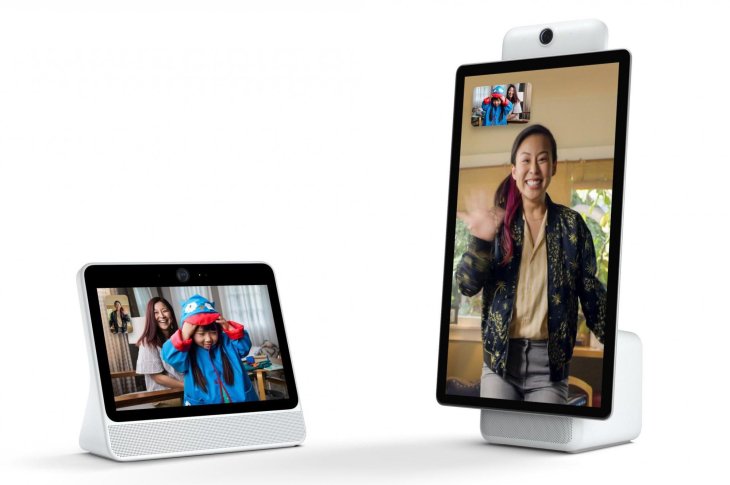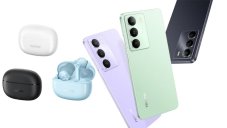Facebook Has Finally Admitted That Portal Can Indeed Spy You
Jeet Parikh - Oct 01, 2018

Facebook announced last week Portal, a gadget that can do video chat and has speakers activated by voice, can actually spy on you.
- Instagram Launches A Lite Version For Users In Rural And Remote Areas
- Australia Passed New Law That Requires Facebook And Google To Pay For News Content
- Facebook Stops Showing Australian Content, Even From Government Sites
Facebook announced last week Portal, a gadget that can do video chat and has speakers activated by voice. This announcement was quite slippery, even with the company stating it would never use the data gotten from Portal for ads. No one can believe them with their track records, which is proven to be right. The company had just admitted the device to be fully capable of getting data on you and using them for ads targeting. However, you don’t have to worry yet, Facebook may not do something like that right away.
This miscommunication is making us all quite confused. Recode initially made a report stating that no data gotten through Portal would be utilized back to the users with Facebook ads targetting. Just a whole week later, Facebook has just recanted the claim. The company is saying that there will be no data gotten that will be utilized to target the users with ads. However, that does not mean the Portal is not completely able to be a monster in collecting your personal data and those can fully be used to target you with ads.

Facebook has stated in a recent statement that the voice calling of Portal is built from the infrastructure of Messenger. Thus, whenever you do make video calls from this device, they will get the same kinds of information that they will get on all the other types of devices that are enabling Messenger. For example, the usage data like frequency of a call, or the length of a call, etc. Facebook added that they might use those data to give information to ads that they are showing us across the platforms. Other typical usage data, like the total usage of an app, etc. might also be the information fed back to Facebook to be used as ads targeting.
This looks like the plain old case of the company stating one thing while later saying another thing that is a complete opposite in meaning. In another interview that follows up, Rafa Camargo of Facebook stated to Recode that he believed what his colleague’s intent was to state that they had no intention of utilizing them. However, they still had the potential of being utilized.
Reading through that statement, one can practically feel the embarrassment. It looks like the communication team of Facebook was either screwing up this badly on purpose then got caught red-handed, or they just simply did not know the way this new device operated. Either way, anyone thinking about giving more than $200 on this gadget that put cameras and microphones into their house should be aware that Facebook had designed it to be able to collect data and turn them to profits through ads.
Facebook is not the only one having this ambition. It is following Google and Amazon in using speakers activated by voice as potential devices for data collections. Amazon is, however, more brazen in doing it. After all, the Echo is a device which analyzes the users’ outfits and makes recommendations what clothes to buy through a camera. There also are reports scattered around that this company is planning to recommend some brands to you when you are asking Alexa about things. Meanwhile, Google is not eavesdropping actively on you. However, it has indeed been experimenting on introducing ads into a multitude of Home devices.
We have known for years Facebook has troubles with security and privacy. It has been almost one decade since the day Mark Zuckerberg stated that privacy no longer was “social norm”, and although Facebook has been trying to backtrack on the claim for a long time, it just keeps on screwing up. The scandal earlier this year with Cambridge Analytics during spring serves as a reminder about Facebook’s policies leading to the leaking and exploiting of personal information that belongs to millions of clients. Then, last week Facebook had admitted a data breach that compromised 30 million clients’ personal data. In other words, Facebook cannot protect clients’ privacy whether by accident or by design.
However, as people before have said, Facebook desires the data, as it is indeed a data giant. It has been making a bunch of money harvesting the user data of billions of clients. After all, it can always sell some targeted ads through the data. Thus, it should come with no one’s surprise that its first push in the hardware scene will further its data collection. And you should not be shocked if it does decide to sell the ads through it. However, it is still quite remarkable that Facebook is so disorganized doing so.
Featured Stories

Gadgets - Jul 21, 2025
COLORFUL Launches iGame Shadow II DDR5 Memory for AMD Ryzen 9000 Series

Gadgets - Jun 23, 2025
COLORFUL SMART 900 AI Mini PC: Compact Power for Content Creation

Review - Jun 18, 2025
Nintendo Switch 2 Review: A Triumphant Evolution Worth the Wait

Gadgets - Jun 18, 2025
Starlink: Why It’s a Big Deal for U.S. Internet in 2025

Gadgets - Jun 17, 2025
How Custom PC Setups Support India's Esports Athletes in Global Competition

Gadgets - Jun 12, 2025
Lava Prowatch Xtreme Launches with Google Fit Integration

Gadgets - Jun 07, 2025
Fujifilm Instax Mini 41 Launches in India: Stylish Instant Camera Now Available...

Mobile - Jun 07, 2025
Realme C73 5G Launches in India: Budget 5G Phone Starts at ₹10,499

Gadgets - Jun 07, 2025
OnePlus 13s Makes Indian Debut: Compact Flagship Brings Premium Features at...

Gadgets - Jun 07, 2025
Comments
Sort by Newest | Popular